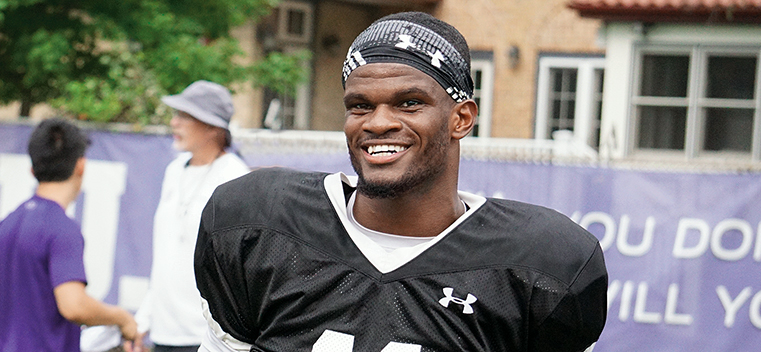
Embracing His Story
Tell us what you think. E-mail comments or questions to the editors at letters@northwestern.edu.
Find Us on Social Media
Football captain provides leadership on and off the field.
Matthew Harris knows everyone has a story, everyone has their ups and downs. But the key to getting through those struggles, according to the senior defensive back, is embracing that story.
Harris ran a two-day program called “Embrace Yours” this past summer, which paired underserved and disadvantaged youth from the Evanston area with role models and mentors, including some of his teammates from the Northwestern football team. Harris ran and organized the program with the help of a $5,000 grant he received in May, along with the Irving Kabiller Memorial Award for Excellence in Character, Commitment and Community from NU For Life.
“[My interest in helping disadvantaged youth] started with my story,” says Harris, who is from Chicago’s southwest suburbs. His parents divorced when he was 5, and his father died when Harris was 12, leaving his mother scrambling to support eight children.
Harris sees himself in the youth he works with. “There’s a lack of positive role models in their lives, someone who can tell them right from wrong,” he says. “Most of the time it’s not that the kids are bad. Maybe they’ve gotten bad guidance or they don’t have anything to look forward to as far as the future.”
This idea for the program hit Harris last summer, when he visited a detention center with a group of Northwestern student-athletes. The group played basketball with some of the men in the facility and answered their questions, helping to instill in them the knowledge that just because they made a mistake, they are not inherently bad people.
Harris, who retired from football in October, plans to continue his involvement with disadvantaged children, serving as a mentor, educator or organizer.
“I’m the type of person that wants every person to feel like they’re worthy,” he says.



 Facebook
Facebook Twitter
Twitter Email
Email


